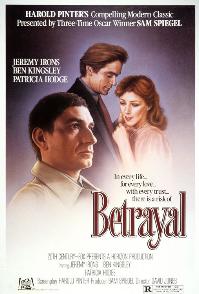
Beautiful Girls is a 1996 American romantic comedy-drama film directed by Ted Demme and written by Scott Rosenberg. Its story follows New York jazz pianist Willie Conway, as he heads back to his hometown of Knight's Ridge, Massachusetts for his high school reunion, where he finds his friends evaluating their lives and relationships. It stars Matt Dillon, Noah Emmerich, Lauren Holly, Timothy Hutton, Rosie O'Donnell, Martha Plimpton, Natalie Portman, Michael Rapaport, Mira Sorvino and Uma Thurman.

Terms of Endearment is a 1983 American family comedy-drama film directed, written, and produced by James L. Brooks, adapted from Larry McMurtry's 1975 novel of the same name. It stars Debra Winger, Shirley MacLaine, Jack Nicholson, Danny DeVito, Jeff Daniels, and John Lithgow. The film covers 30 years of the relationship between Aurora Greenway (MacLaine) and her daughter Emma (Winger).

Shirley MacLaine is an American actress and author. Known for her portrayals of quirky, strong-willed, and eccentric women, she has received numerous accolades over her eight-decade career, including an Academy Award, an Emmy Award, two BAFTA Awards, six Golden Globe Awards, two Volpi Cups, and two Silver Bears. She has been honored with the Film Society of Lincoln Center Tribute in 1995, the Cecil B. DeMille Award in 1998, the AFI Life Achievement Award in 2012, and the Kennedy Center Honor in 2013.

Alice Doesn't Live Here Anymore is a 1974 American romantic comedy drama film directed by Martin Scorsese and written by Robert Getchell. It stars Ellen Burstyn as a widow who travels with her preteen son across the Southwestern United States in search of a better life. Kris Kristofferson, Billy "Green" Bush, Diane Ladd, Valerie Curtin, Lelia Goldoni, Vic Tayback, Jodie Foster, Alfred Lutter, and Harvey Keitel appear in supporting roles.

Larry Jeff McMurtry was an American novelist, essayist, and screenwriter whose work was predominantly set in either the Old West or contemporary Texas. His novels included Horseman, Pass By (1962), The Last Picture Show (1966), and Terms of Endearment (1975), which were adapted into films. Films adapted from McMurtry's works earned 34 Oscar nominations. He was also a prominent book collector and bookseller.

Melanie Richards Griffith is an American actress. Born in Manhattan to future actress Tippi Hedren, she was raised mainly in Los Angeles, where she graduated from the Hollywood Professional School at age 16. In 1975, 17-year-old Griffith appeared opposite Gene Hackman in Arthur Penn's neo-noir film Night Moves. She later rose to prominence as an actor in films such as Brian De Palma's Body Double (1984), which earned her a National Society of Film Critics Award for Best Supporting Actress. Griffith's subsequent performance in the comedy Something Wild (1986) attracted critical acclaim before she was cast in 1988's Working Girl, which earned her a nomination for the Academy Award for Best Actress and won her a Golden Globe.

Another Stakeout is a 1993 American buddy cop action comedy film directed by John Badham and starring Richard Dreyfuss, Emilio Estevez, and Rosie O'Donnell. It is a sequel to the 1987 film, Stakeout. Unlike its predecessor, the film was neither a critical nor a commercial success.

Sweet Dreams is a 1985 American biographical film which tells the story of country music singer Patsy Cline.

Marion Ross is a retired American actress. Her best-known role is that of Marion Cunningham on the ABC television sitcom Happy Days, on which she starred from 1974 to 1984 and for which she received two Primetime Emmy Award nominations. Before her success on Happy Days, Ross appeared in a variety of film roles, appearing in The Glenn Miller Story (1954), Sabrina (1954), Lust for Life (1956), Teacher's Pet (1958), Some Came Running (1958), Operation Petticoat (1959), and Honky (1971), as well as several minor television roles, one of which was on television's The Lone Ranger (1954). She was also twice nominated successively in 1992 and 1993 for the Primetime Emmy Award for her performance on the CBS television comedy-drama Brooklyn Bridge and later netted another Emmy nomination in 1999 for a two-episode appearance on the popular CBS drama Touched by an Angel. Ross also starred in the high-profile, long-anticipated sequel to Terms of Endearment (1983), The Evening Star (1996), in a turn for which she was nominated for the Golden Globe Award for Best Supporting Actress, as well as both a nomination and win for a Lone Star Film and Television Award for Best Supporting Actress.

Patricia Jude Kensit is an English actress and was the lead singer of the pop band Eighth Wonder in the 1980s.

Two for the Seesaw is a 1962 American romantic-drama film directed by Robert Wise and starring Robert Mitchum and Shirley MacLaine. It was adapted from the 1958 Broadway play written by William Gibson with Henry Fonda and Anne Bancroft in the lead roles.

In Her Shoes is a 2005 American romantic comedy-drama film directed by Curtis Hanson and written by Susannah Grant, based on the 2002 novel of the same name by Jennifer Weiner. It stars Cameron Diaz, Toni Collette, and Shirley MacLaine. The film focuses on the relationship between two sisters and their grandmother.

One Fine Day is a 1996 American romantic comedy-drama film directed by Michael Hoffman, starring Michelle Pfeiffer and George Clooney as two single working parents, with Alex D. Linz and Mae Whitman as their children. The title comes from the 1963 song "One Fine Day" by the Chiffons, which is heard in the film.

Trees Lounge is a 1996 American comedy-drama film and the debut of Steve Buscemi as writer and director. It was produced by Brad Wyman and Chris Hanley and features a large ensemble cast of actors, including Buscemi, Anthony LaPaglia, Chloë Sevigny, and Samuel L. Jackson. The film's black humor is based on examination of characters' self-destructive behavior, revolving around their shared hangout of the titular bar and lounge.

A Night in Heaven is a 1983 American romantic drama film directed by John G. Avildsen, starring Christopher Atkins as a college student and Lesley Ann Warren as his professor. The film's screenplay was written by Joan Tewkesbury. Film critics widely panned the film, but the film itself became better known for Bryan Adams' chart-topping single "Heaven".

Betrayal is a play written by Harold Pinter in 1978. Critically regarded as one of the English playwright's major dramatic works, it features his characteristically economical dialogue, characters' hidden emotions and veiled motivations, and their self-absorbed competitive one-upmanship, face-saving, dishonesty, and (self-) deceptions.

Patsy Smart was an English actress, best remembered for her performance as Miss Roberts in the 1970s ITV television drama Upstairs, Downstairs.

Betrayal is a 1983 British drama film adaptation of Harold Pinter's 1978 play of the same name. With a semi-autobiographical screenplay by Pinter, the film was produced by Sam Spiegel and directed by David Jones. It was critically well received. Distributed by 20th Century Fox International Classics in the United States, it was first screened in movie theaters in New York in February 1983.
Restless Blood is a 1946 Finnish drama film directed by Teuvo Tulio and starring Regina Linnanheimo, Eino Katajavuori and Toini Vartiainen. The film tells the story of siblings Sylvi and Outi, who love the same man, Sylvi's husband Valter. The couple's relationship breaks down after the tragic death of their child. After becoming blind, Sylvi suspects Valter is being unfaithful to her. She begins spying on her husband and sister Outi, and gradually her mental health deteriorates with fatal consequences.
Terms of Endearment is a dramatic stage play written by American playwright Dan Gordon, adapted from the novel by Larry McMurtry. The play tells the fictional story of mother and daughter Aurora Greenway and Emma Greenway-Horton as they face challenges in life and have their relationship tested, showing resilience and strength in the face of adversity.


















